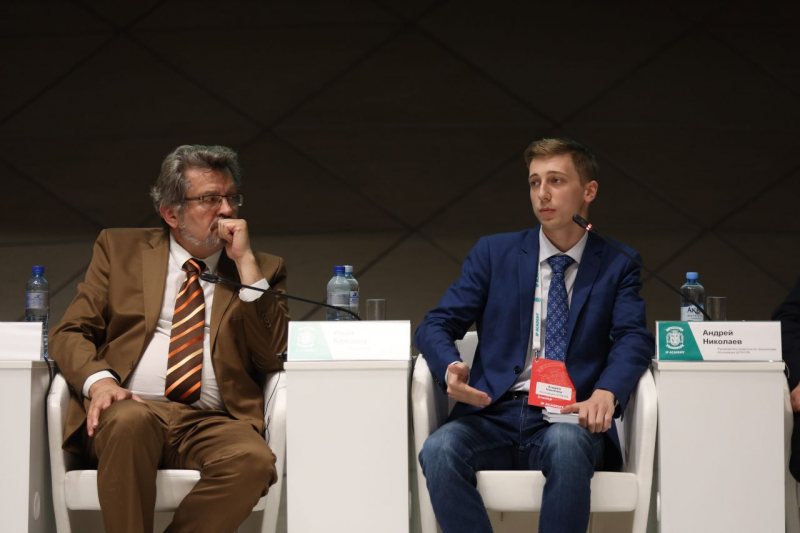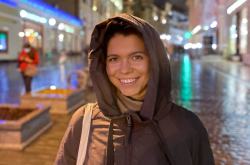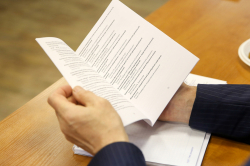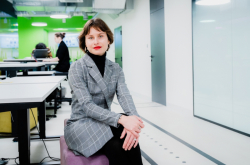Despite his young age, Andrey Nikolaev already has a PhD and supervises two educational programs at ITMO’s Faculty of Technological Management and Innovations (FTMI): the Technological Innovations Management Bachelor’s program and Intellectual Property Management Master’s program.
He combines his work at the university with the duties at the GEROPHARM pharmaceutical company and technology committee of the Association of Technology and Innovation Support Centers where he develops patent strategies for startups.
Andrey has written over 70 academic papers and five teaching handbooks, was awarded by the Government of St. Petersburg, won the Golden Names of Higher Education competition, and entered internships at the UN, WIPO, and WCO. In his spare time, he also manages to work as a correspondent for Megabyte Media.
ITMO.NEWS met with Andrey to learn more about his academic and career paths, as well as his secret to working on numerous projects at once.
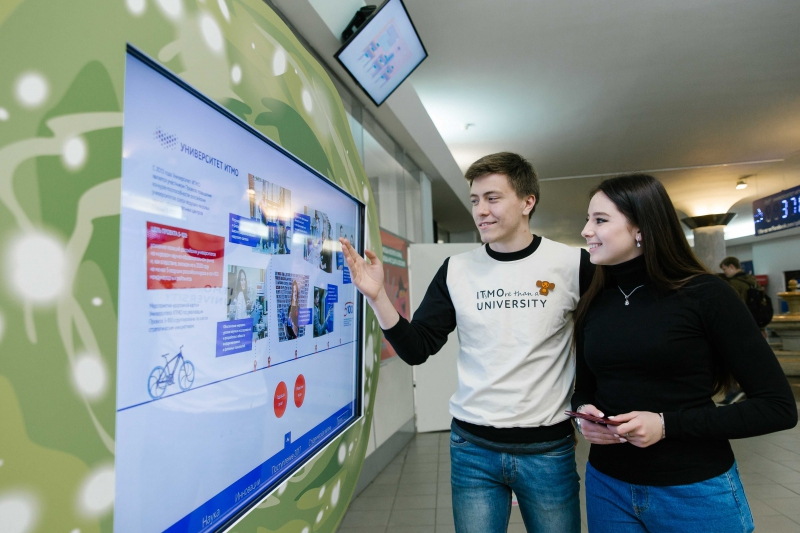
Career path
Choosing a university was difficult for me because I wanted to try everything and already had some experience in journalism and directing feature films. But I realized that these fields require life experience more than a specialized education. And eventually, I gave up on these options because of my financial situation and a new outlook on life. Now I can’t even imagine myself on set.
Actually, I decided to apply to ITMO at the very last moment. The admissions office told me about the Customs Affairs Specialist’s program – an extremely popular specialization with only five tuition-free positions. I was immediately attracted by ITMO University’s unique environment and was eager to study here.
I’m very happy with my choice. I think that it is a notable specialization that offers a wide range of all-round competencies. It includes knowledge in both Russian and international legislation, examination of goods and services, as well as management skills, including risk management – such a variety of subjects that allows students to examine issues from different perspectives: government, business, or technologies.
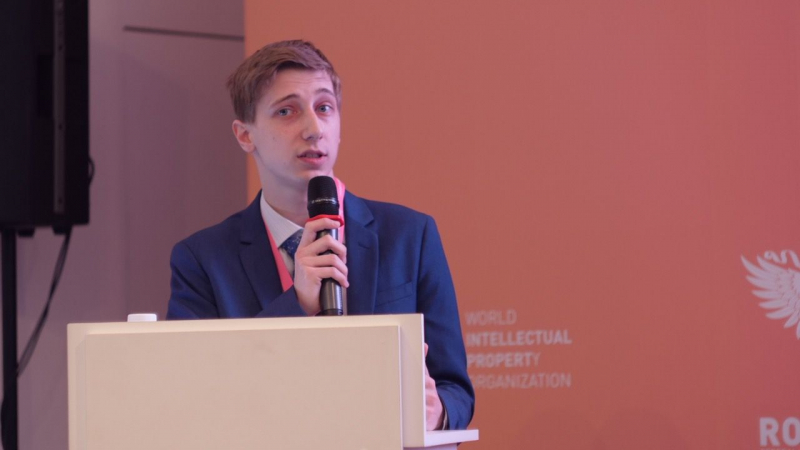
Benefits of education
I learned a lot at ITMO University. It let me travel internationally – first as part of delegations and student internship programs, and now I organize such trips for my students. We had a whole lot of internship opportunities at our program, including study visits to the UN, WIPO, European Parliament, and European Commission. I think it would be difficult for me to gain this experience anywhere else.
By the way, thanks to these internships and trips, we came up with the project of the International Customs Students Association (ICSA), initially organized for ITMO customs students, but over time it expanded and went global.
The organization unites universities from around the world and students in the fields of customs, innovations in external trade, and international economic activity. They share their experiences, conduct joint scientific research, and present their works at world venues. Our organization holds major international conferences both for students and experts.
This year, amid the pandemic, the i-Customs Conference took place online and turned out very well. We have offices in China, Belarus, Azerbaijan, Kazakhstan, Poland, the Philippines, Tunisia, and Honduras. So ITMO also gave me valuable experience in hosting, organizing, and supervising major events. Every year we organize conferences with over 200-300 participants at ITMO University.
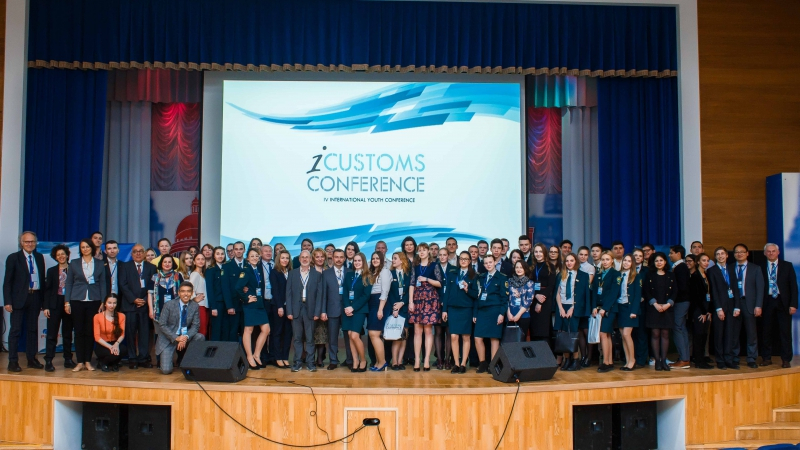
I should also mention highly developed extracurricular activities at the university. From 2012 to this day, I have been a correspondent for Megabyte Media and it gave me the opportunity to find myself in journalism. I made reports from various angles and platforms. We also went to see the construction of Krestovsky Stadium, visited a nuclear power plant, and observed the work of various industrial enterprises. We talked to a variety of people, tackled challenges, including conflicts (this is inevitable in journalism). All this greatly helped me develop soft skills that are vital in modern life.
I am very grateful to my professors – now my colleagues – for their help and advice. Without my supervisor, Elena Bogdanova, and a scientific consultant, Tatyana Maximova, it’d be difficult for me to overcome all this. The entire FTMI team was very supportive when I was preparing for my thesis defense, and I appreciate it.
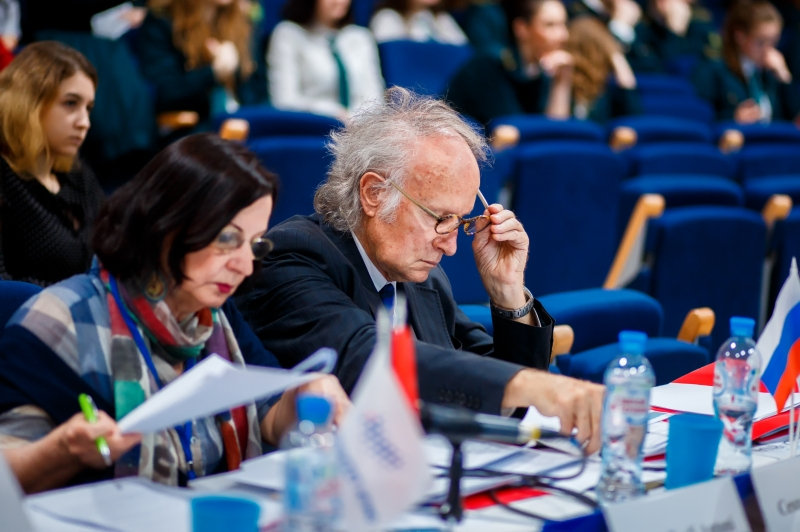
From a customs officer to IP specialist
During my studies, I did an internship at customs and worked at a rather complex risk management department. I knew from the start that I was going to pursue my PhD degree and academic career but now, being a professor, I do my best to keep up with trends and regularly advance my knowledge in customs.
Fortunately, almost all of my fellow students practice their profession, and we can discuss and share our views on the field. I’d say that my internship helped me a lot because risk management, in my opinion, is the basis of everything.
In 2015, I got a job at ITMO University and was involved in the educational process at the Technological Innovations Management and Intellectual Property Management programs. I got really interested in this topic, so when I applied for PhD studies, I knew for sure that I’d like to focus on innovation and intellectual property management in my thesis.
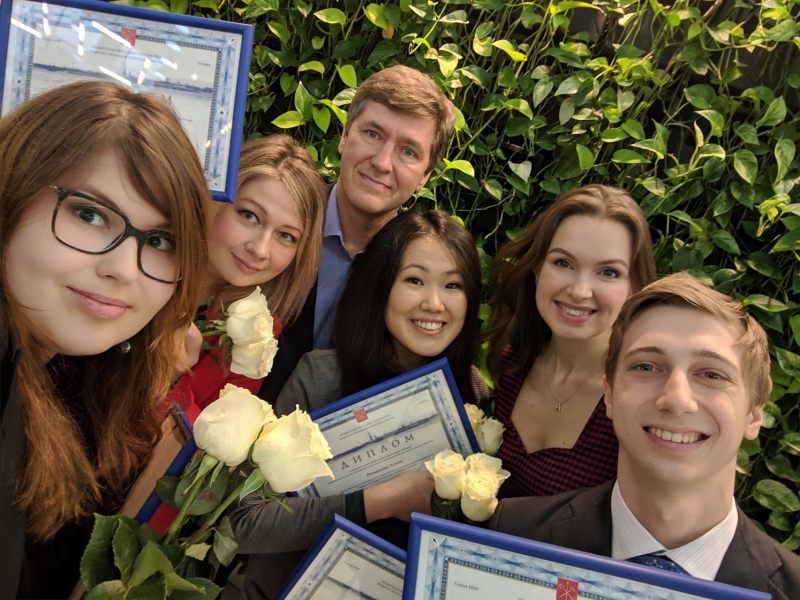
My thesis was centered around the management of innovative activities of Russian pharmaceutical enterprises with the use of patent landscape tools. I couldn’t explore this topic without knowing how such companies work from the inside.
Many thanks to our professor, Ksenia Nasonova, who recommended me to the management of GEROPHARM. For over a year and a half now, I have been combining my work at this company with teaching at ITMO. I work at a legal department and am in charge of registering trademarks, supporting applications for patent documents, and all kinds of administrative work such as communicating with government agencies and counterparts.
Patent landscape
It’s crucial to start looking for a patent when you start a project or just explore new opportunities. First, we need to study the current trends and patents in other companies. This research will help us understand what’s happening in the field and will be demanded in the near future.
The essence of patent research lies in a thorough investigation of patent documents on intellectual property objects: inventions, industrial designs, and utility models. It is official and verified information that is, for the most part, under open access and easy to process.

The results should be described in some form. For instance, we have a huge spreadsheet in Excel. It’s very difficult for a non-specialist to deal with such information.
The patent landscape is a modern visualization of patent search results. Landscapes can look like tag clouds, heat maps, graphs, and so on. Based on such a visualization, it is easier for companies to make management decisions. For example, if it turns out that there are already powerful competitors, large companies in the studied field, then it is hardly worth going there. Or vice versa, if there is no patent activity at all, then perhaps it is not in demand. Each case is different, and the results are always very interesting for analysis.
State corporations, startups, and universities
Patent landscapes are indeed common and popular in various organizations. This is still a large private sector with major findings as quality research is never low-priced, but state-owned companies are also very interested in patent landscapes.
There is now a trend – investigated as part of my research, too – of reducing the cost of patent research, so that small and medium-sized businesses, including startups, could use this opportunity.
Our goal is to make patent analytics appealing to a wide range of researchers so that they would be able to use both free databases and standard visualization methods to solve problems in their innovation activities. We are also trying to develop patent landscapes at universities.
This is our joint project with the Association of Technology and Innovation Support Centers, which, firstly, is engaged in educational activities by letting more people learn what intellectual property is and how it is protected, and, secondly, consults people about it.
In Russia, the TISC network has existed since 2012; today there are about 170 centers in different regions. Usually, they are opened under the aegis of large research organizations, research and production clusters, as well as universities.
The technology committee, which I chair, promotes educational products and initiatives. We regularly hold training seminars in Russian cities, share our experience, and talk about the practices that we have managed to implement at universities, in particular, at ITMO.
We also actively help various startups and projects, as well as young inventors with their ideas, for example, as part of the International children's contest “School Patent – Step into the Future”.
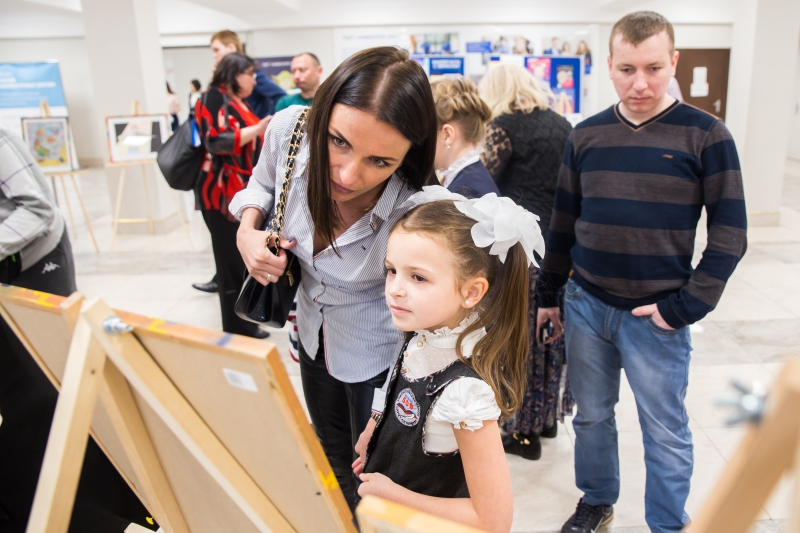
Intellectual property at ITMO
This topic was discussed at ITMO’s IP-HUB and now is extremely popular among other Russian universities. We offer our Master’s students in Intellectual Property Management to work with a selected project, and they have to conduct a patent search, report its options, draw up a commercialization plan, and even find a potential investor.
This is an interesting, creative work that requires a joint effort of students and professors. We already have many successful cases, for example, security officials became interested in a vision simulator for strengthening eyesight, which was developed by a school student.
Another interesting example – a student of Teens in Tech proposed the solution of an umbrella with a built-in water-spraying system. We thought it was a really good idea, so we used our resources, and prepared an application for the patent. Now we have an ambitious prospective student.
Our faculty will soon be home to a new project called IP Exchange – a consulting center that will bring together students with different ideas and projects, and help them create a project roadmap to implement and protect their inventions in the field of IP.
There is already a pool of experts who work with applications at the level of the Federal Service for Intellectual Property and WIPO, including our current professors and experts of our educational program. But the most important participants will be our Master’s students that will have the chance to gain experience in supporting real projects.
Soon, we will announce the launch of the program and its requirements. And in the future, it may become an open platform not only for ITMO students but also for all interested students from other universities.
A change is as good as a rest
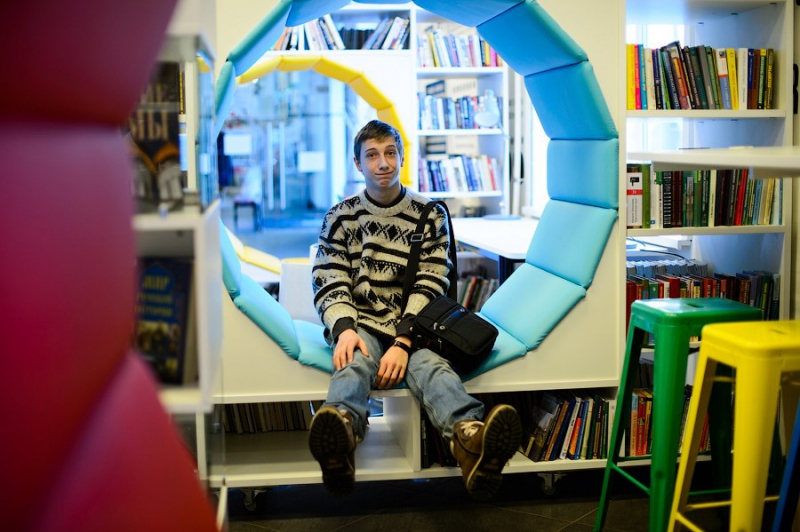
I can’t say that I have no problems with doing so many projects at once but if the work is stimulating and multitasking, you’re fueled by facing the new challenges and it’s the best way to recharge.
Why did I choose teaching? Because when you see how students respond to new material and their enthusiasm about projects, you feel that you get something in return – and it’s a powerful antidote to stress and burnout. I am really proud of my students, they always surprise and inspire me.
Tips for students
I think the best recipe for success is to be aware of your strengths and make good use of your capacities. Everyone in the world has potential. You shouldn’t be afraid to be open and proactive, take part in events, conferences, competitions, and various activities. This way you will learn more about yourself and gain confidence. And it also helps professors to see your abilities and put you on the right track.
Of course, you should not only be a confident but also all-around intellectually developed person. I always encourage my students to read as much information as possible from different sources and to be up to date with the business, economic, and cultural agenda – otherwise, your work might be not relevant and needed at all.
